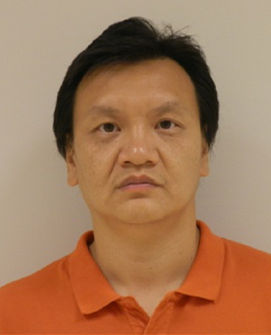| Biography | |
|---|---|
 Dr. Wu Wei University College London, UK |
|
| Title: Magnetic and optical properties of metal-phthalocyanines | |
| Abstract: Organic semiconductors based on phthalocyanine molecules have been proven to be a promising material candidate in nano-magnetism [1, 2], optical devices [3], and quantum information processing [4]. These organic materials are formed by the one-dimensional molecular chains. In this presentation, I will first discuss recent theoretical and experimental work on the photon-detector devices consisting of copper-phthalocyanines with fast optical response [1]. In addition, I will discuss the magnetic properties of transition-metal phthalocyanines, including copper-, cobalt, chromium-, and lithium-phthalocyanines [5, 6, 7, 8]. We have demonstrated theoretically and experimentally that cobalt-phthalocyanines have a magnetic transition temperature higher than the boiling point of nitrogen [5, 6], which is very promising for magnetic information storage and spintronics. Theoretically we have also shown that there is a huge potential in magnetism for lithium-phthalocyanines [8], in which a large exchange interaction arises from the p-orbitals of carbon/nitrogen atoms. The strong anti-ferromagnetic interactions in these molecular chains can be explored for spintronics based on anti-ferromagnetism. By combining copper- and cobalt-phthalocyanines, we can form ferromagnetic chains artificially, leading to organic magnetic meta-materials [9]. Using optical excitations and inter-system crossing, optical control of spin-spin interaction can be realized in molecules, which has a great potential in spintronics and optoelectronics [10]. We can also combine the graphene quantum materials with phthalocyanines to fabricate novel optic-al devices [11]. | |
| Biography: Dr. Wei Wu graduated from the world-renowned institution of higher learning - University College London (No. 10 in 2019 QS World University). Then he successively worked for the Department of Chemistry and Materials at Imperial College London (No. 8 in 2019 QS World University), and the world-renowned nanotechnology research and development centre - London Centre for Nanotechnology. In the interdisciplinary field of physics, chemistry and materials science, Dr. Wei Wu’s research focus is using computer simulation and theoretical calculation to optimize and design new materials or nano-structures based on semiconductors such as silicon or other organic semiconductors. These will also provide important characteristic information about the electronic structure, optical, and magnetic properties of the advanced materials/nanostructures. He has published his work on Nature Communications, Advanced Materials, ACS Nano, Physical Review series, etc. Recently, Dr. Wei Wu collaborated with the higher education institutes in China to work on a variety of topics, including organic light-emitting diodes, low-dimensional physics, and molecular physics. These works were published in Journal of Material Chemistry and RSC Advances, etc. | |
